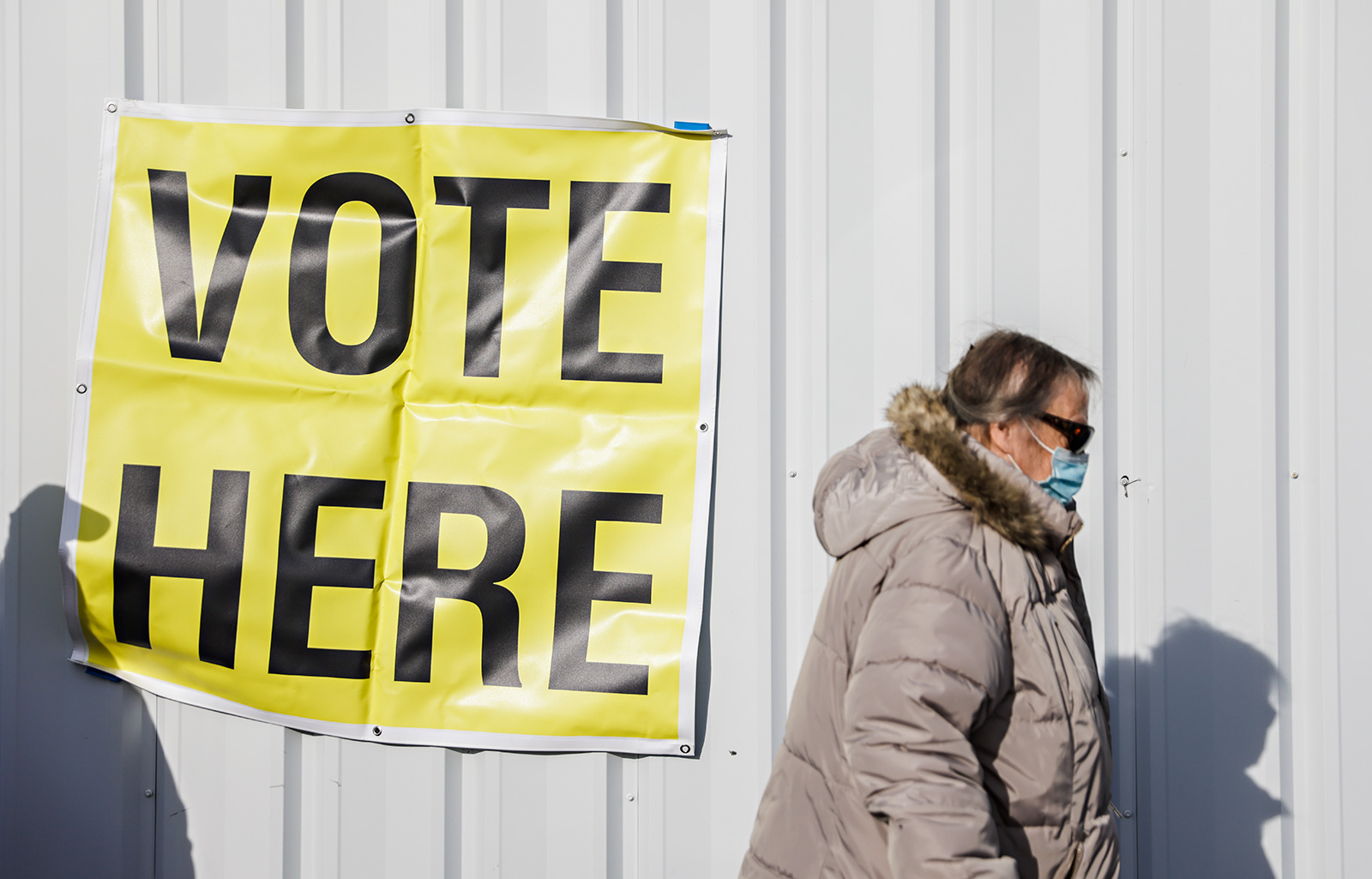Montana Supreme Court Strikes Down Election Laws
Upholding a district court ruling, the Supreme Court argued that four laws passed by the 2021 Legislature infringe on the rights of youth and Native voters while doing little to guard against election fraud
By Denali Sagner
The Montana Supreme Court on Wednesday struck down four election laws passed by the 2021 Montana Legislature, affirming a 2022 ruling by a state district court judge. According to the court’s opinion, the four laws impose an undue burden on citizens attempting to cast a ballot and, specifically, curtail voting access for college students and Montanans living on Native reservations.
“Although the Legislature is given power regarding elections, it may not exercise that authority in a way that violates the freedom and openness of our elections or interferes with the free exercise of the right of suffrage,” the Court wrote.
Plaintiffs included the Montana Democratic Party, Western Native Voice, Montana Native Vote, the Blackfeet Nation, the Confederated Salish and Kootenai Tribes (CSKT), the Fort Belknap Indian Community, the Northern Cheyenne Tribe, Montana Youth Action, Forward Montana and the Montana Public Interest Research Group (PIRG). Secretary of State Christi Jacobsen is the listed defendant.
Per the court ruling, the four laws — House Bill 506, House Bill 176, House Bill 530 and Senate Bill 169 — “violate the fundamental right to vote provided to all citizens by the Montana Constitution.”
House Bill 506 required a qualified elector to be 18 years of age or older. Prior to the passage of the law, a citizen who was not yet 18, but would turn 18 by Election Day, could register to vote. In banning young voters from registering prior to their eighteenth birthdays, the Court argued the state “severely interfered with the right to vote” for the group.
House Bill 176 eliminated same-day voter registration and closed registration at 12 p.m. the day prior to an election. The court noted that the Legislature passed House Bill 176 despite “vociferous opposition to the Bill in public hearings” and evidence that it would disproportionately affect first-time and Native voters. According to the opinion, over 60% of the Montana voters who use same-day registration are under the age of 34.
The court added that many Native voters rely on same-day registration due to “numerous issues they face in voting, including lack of access to mail, transportation, and the long distances to county seats where they can register.”
“Many of these barriers cannot be overcome, or become too costly to overcome, and thus disenfranchise these voters,” the opinion stated.
House Bill 530 required the secretary of state to adopt rules banning the practice of paying individuals to collect and submit absentee ballots for others.
The court ruled that while it will continue to be illegal to pay ballot collectors by the number of ballots collected, barring the practice altogether will disenfranchise individuals with disabilities and Native voters, who often have difficulty accessing faraway polling stations. Citing “the unique circumstances in Indian country that make it much more difficult to access polling places or post offices,” the court ruled that paying employees for general ballot collection can continue.
Senate Bill 169 prevented the use of student identification cards as an acceptable form of identification for in-person voting. The court ruled that bill imposes an unreasonable burden on students attempting to vote and argued that the legislation was an attempt by lawmakers to suppress the votes of students.
The court quoted former Speaker of the Montana House Wylie Galt, R-Martinsdale, speaking on the House floor in support of the bill saying, “… if you’re a college student in Montana and you don’t have a registration, bank statement, or a W2, makes me kind of wonder why you’re voting in this election anyway. So this just clears it up that [students] have a little stake in the game.”
The ruling stated that the law is “unnecessary” and burdensome.
In defense of the four laws, the secretary of state’s office argued that the measures increased election security, eased administrative burdens and improved voter confidence in elections. The court, however, rebutted that the office “failed to introduce any evidence of fraud related to ballot collection in Montana.”
Claims of voter fraud have seeped into local and statewide elections across Montana, with Republican lawmakers alleging breaches in election security and misconduct by election officials.
A 2022 audit by the secretary of state’s office found that Montana’s elections are “secure, safe and fair.” The audit evaluated precincts across 44 Montana counties, finding no election irregularities in any of them.
In an email statement, a spokesperson from Jacobsen’s office said, “The Secretary is devastated by this decision but assures Montanans that her commitment to election integrity will not waver by this narrow adoption of judicial activism that is certain to fall on the wrong side of history. The Montana Constitution guarantees that citizens have the right to accessible and secure elections. State and county election officials have been punched in the gut.”
Representatives for the plaintiffs lauded the ruling as a victory for voting access and for the rights of Indigenous and youth voters.
“We are very pleased with today’s landmark ruling by the Montana Supreme Court,” Western Native Voice Executive Director Ronnie Jo Horse said in a statement. “It stands as a testament to justice prevailing in defense of the rights of Montanans, especially those of Native Americans communities . By striking down laws that impede Native American participation in our electoral process, the court reinforces the principle of equitable access to voting services and the protection of the rights for all voters, especially those residing on reservations where voting barriers are much higher.”
“Whether you are 18 or 65, your fundamental right to vote is protected in Montana,” Madeleine French, board chair of MontPIRG, said. “Today’s decision protects the power of youth to participate.”
The full opinion can be read below.